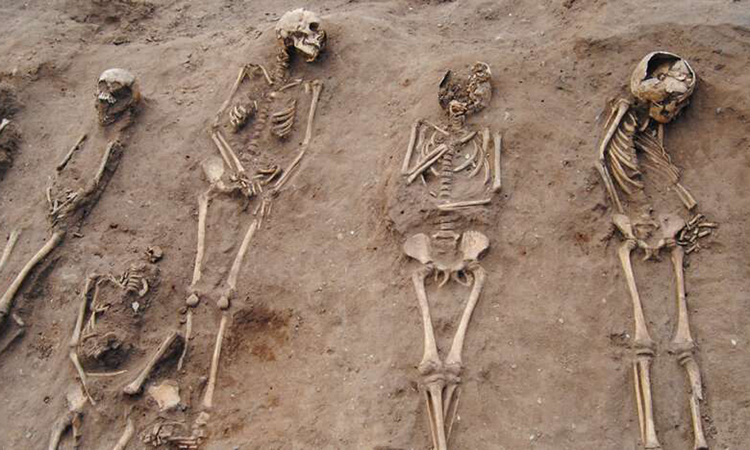Discovered in Vianen, a small town in the Netherlands, this mass grave dates back to the late 18th or early 19th century
Discovered in Vianen, a small town in the Netherlands, a mass grave dating back to the late 18th or early 19th century has offered a poignant glimpse into a forgotten chapter of European history. Found during excavation work for a new canal, the site initially yielded a few skeletons, which quickly turned into a much larger and more significant discovery of over 80 individuals. The burial site, located near the ruins of the historic Batestein Castle, immediately prompted archaeologists to seek answers about the identity of the deceased and the circumstances of their mass burial.

Forensic analysis and radiocarbon dating provided the first crucial clues, revealing that the remains were predominantly young men, most of whom were between 15 and 30 years old. The initial assumption that they were soldiers who died in battle was later revised. While some skeletons showed evidence of medical procedures like amputations, a deeper look revealed that the men had actually died from infectious diseases. The presence of multiple infections, including meningitis and pneumonia, suggested they were victims of an epidemic that spread rapidly in cramped, unsanitary conditions.

This evidence led researchers to a powerful conclusion: the mass grave likely holds the bodies of British soldiers who died in a nearby field hospital during the First War of the Coalition (1792-1797), a conflict fought against Revolutionary France. Archival records supported this theory, mentioning a British field hospital operating in the ruins of Batestein Castle during that period. The discovery not only fills a gap in the historical record of this war but also provides a rare, tangible connection to the lives of ordinary soldiers—often overlooked in official histories—who endured immense hardship and died far from home.
